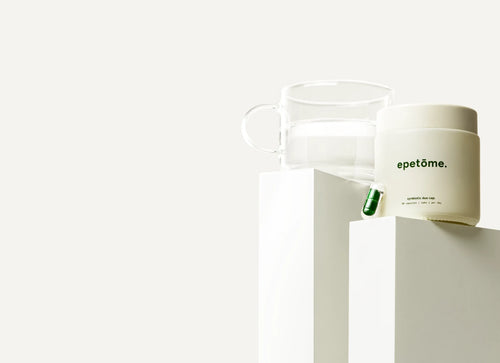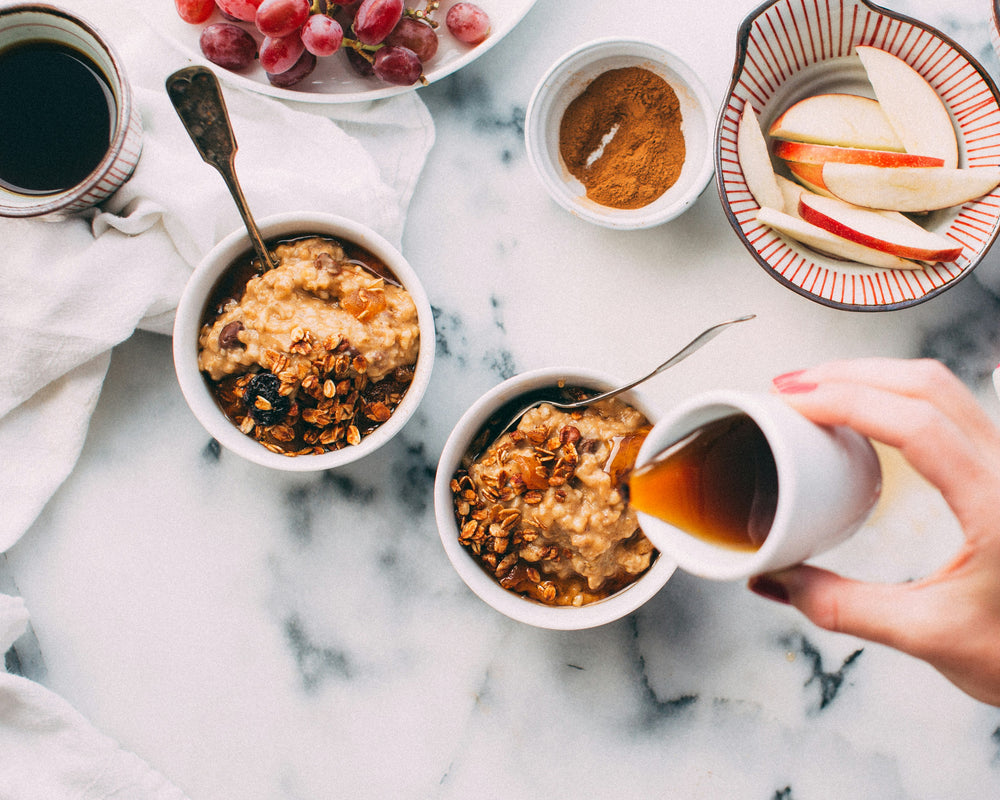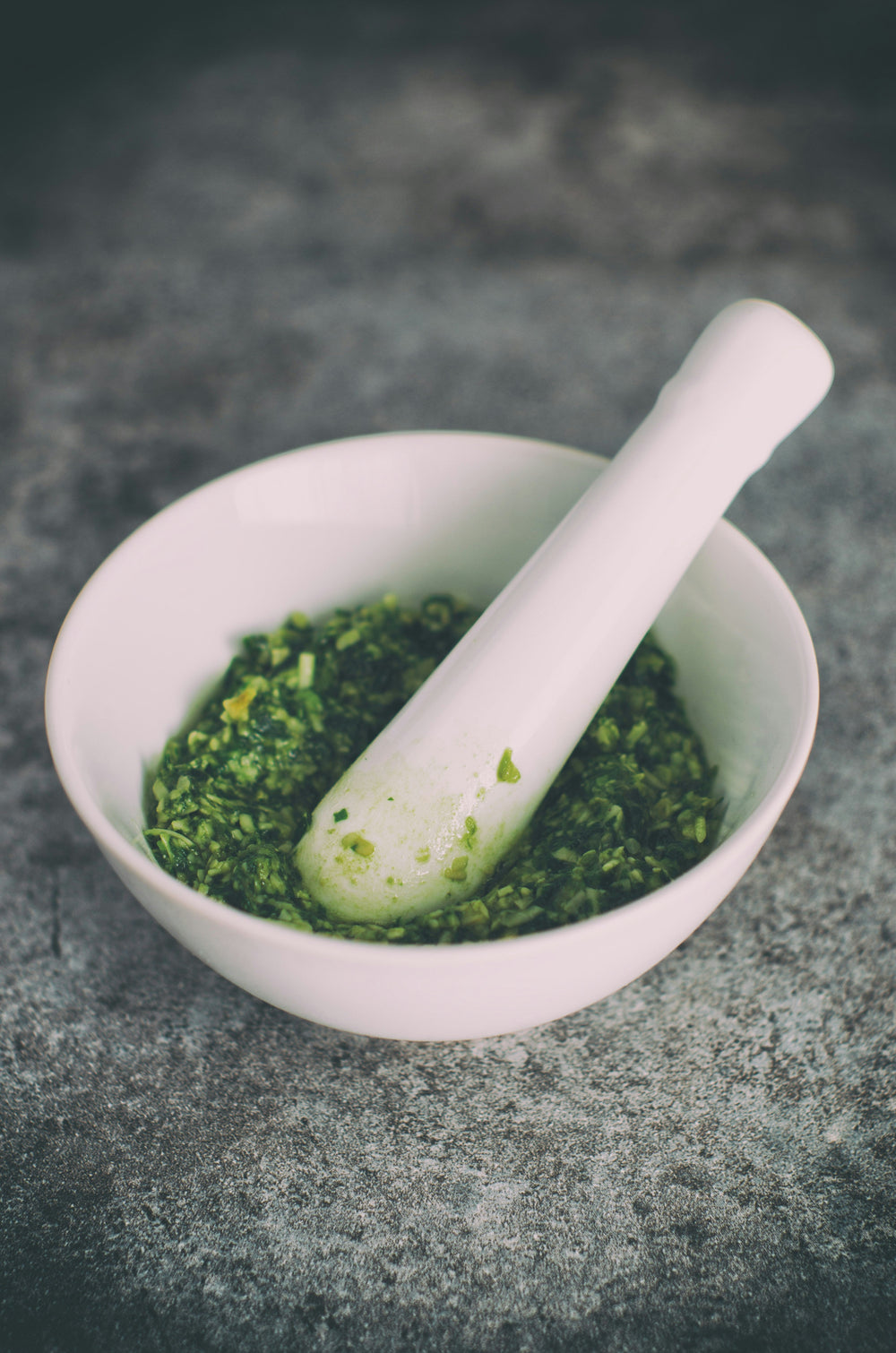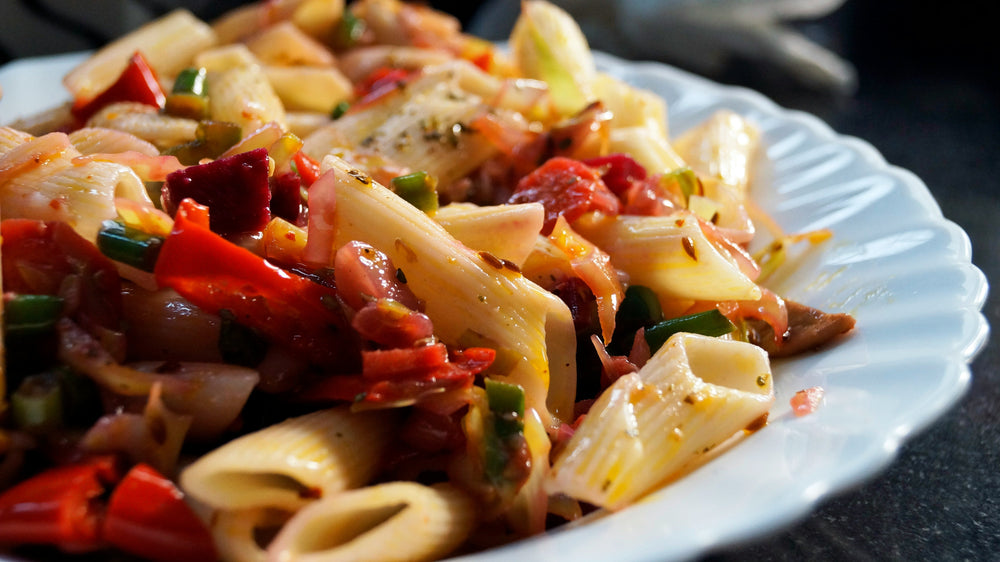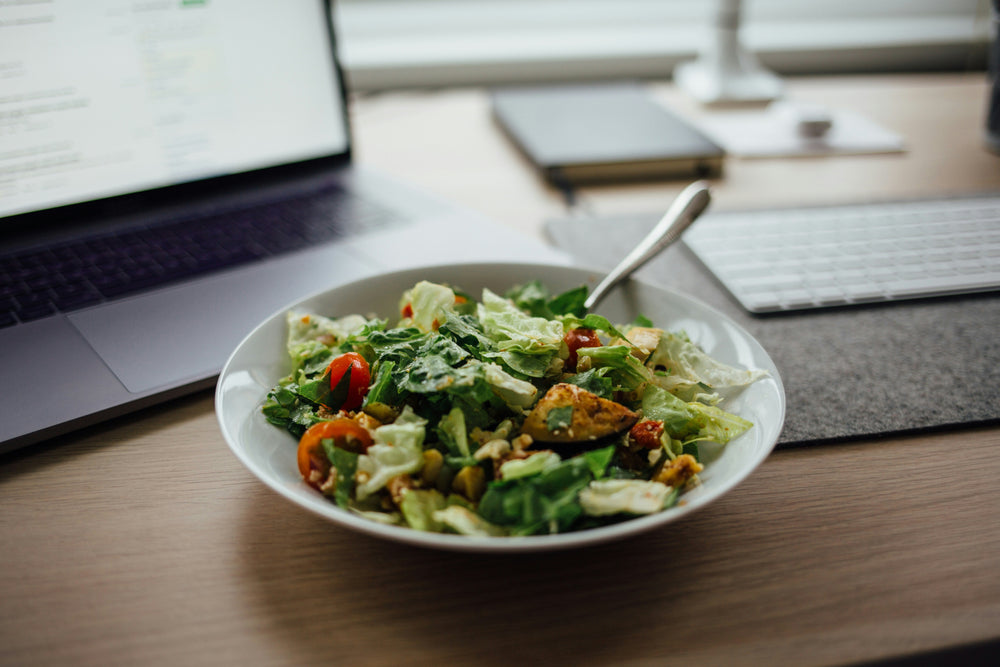This creamy green soup brings together broccoli, cauliflower, and kale for a delicious bowl that feels both comforting and energising. Finished with crispy chickpeas and toasted almonds, it is an easy way to enjoy a whole day’s worth of greens in one simple, nourishing meal.
understanding bloating and IBS in women.
Understanding Bloating and IBS in Women- why us? Bloating - that uncomfortable sensation of fullness and distension in the abdomen - is an all too familiar experience for the women in my life. Coupled with Irritable Bowel Syndrome (IBS) among many friends, it led me to question why women seem to be more susceptible? Here I delve into the complexities of bloating, IBS, and explore effective strategies for alleviating symptoms. Why Women Bloat? Several factors contribute to bloating in women. Hormonal fluctuations, particularly during the menstrual cycle, can lead to water retention and abdominal distension [1]. Additionally, women tend to have slower digestive transit times compared to men, which can exacerbate bloating [2]. Dietary factors, such as consumption of gas-producing foods and insufficient fibre intake, also play a role in bloating [3]. Why IBS is More Common in Women IBS is a functional gastrointestinal disorder characterised by symptoms like abdominal pain, bloating, and altered bowel habits. While the exact cause of IBS remains elusive, several factors contribute to its prevalence in women. Hormonal influences, particularly estrogen, have been implicated in the pathogenesis of IBS [4]. Moreover, psychosocial factors, such as stress and anxiety, can exacerbate IBS symptoms, and women are more likely to experience these triggers [5]. Causes of IBS, Bloating, and Digestive Discomfort IBS and bloating can stem from a myriad of causes, including: Imbalance in gut microbiota Food intolerances or sensitivities Stress and anxiety Sedentary lifestyle Poor dietary habits Remedies and Tactics for Relief While there's no one-size-fits-all solution for bloating and IBS, adopting certain lifestyle modifications and dietary changes can help alleviate symptoms: Probiotics: Incorporating probiotic-rich foods or supplements into your diet can help rebalance gut microbiota and alleviate bloating and digestive discomfort [6]. Fibre: Consuming adequate fibre, both soluble and insoluble, promotes regular bowel movements and reduces bloating...

lifestyle. gut health recipes.
ready in 10 minutes
herb-whipped cottage cheese chicken bagels.
These basil whipped cottage cheese protein bagels make a fresh, high-protein breakfast or lunch, combining creamy herb-blended cottage cheese with juicy chicken, rocket, and tomatoes. They’re quick to assemble, packed with flavour, and perfect for a nourishing breakfast or light lunch.
ready in 10 minutes
kiwi chocolate protein chia pots.
These Kiwi Chocolate Protein Chia Pots make an ideal high-fibre, high-protein breakfast that keeps you full and energised all morning. They’re quick to prepare, easy to store, and perfect for a healthy grab-and-go option.
ready in 15 minutes
spiced apple porridge.
This spiced apple and pumpkin seed porridge is a warming, high-fibre breakfast that’s perfect for cosy mornings. Made with creamy oats, gently caramelised apples and a crunchy pumpkin seed topping, it’s ready in just 15 minutes and serves one.
ready in 50 minutes
prep-ahead baked blueberry oats.
These prep-ahead oven-baked oats with blueberries and bananas are rich in protein and fibre, making them a nourishing, gut-friendly breakfast to enjoy all week.
ready in 15 minutes
spicy green eggs with feta.
These spicy green eggs with feta are a quick, protein-rich recipe packed with gut-friendly ingredients like spinach, courgette, and spring onion. Baked in the oven or air fryer, they’re simple to make, full of flavour, and support digestion with a balance of fibre, protein, and healthy fats. Perfect for breakfast, brunch, or a light meal, this vibrant dish proves that nourishing your gut can be both delicious and easy.
ready in 10 minutes
egg wrap with pesto.
Bright, fresh, and ready in just 10 minutes, this flavour-packed wrap serves one and is ideal for breakfast, lunch, or any time you’re after something simple yet filling.
ready in 10 minutes
peach cobbler overnight oats.
Start your day with a gut-friendly twist on a classic dessert. The peach cobbler overnight oats serve 2–3 and takes just 10 minutes to prepare the night before. Packed with fibre, flavour and feel-good ingredients, it’s the perfect make-ahead option for busy mornings or a nourishing snack you can enjoy any time of day.
ready in 15 minutes
smoky egg salad bagel crunch.
This smoky harissa egg bagel is the perfect 15-minute meal. Made with creamy Greek yoghurt, tangy pickles, and a hint of spice, it’s a high-protein twist on classic egg salad that delivers on both taste and texture. Ideal for busy days, this easy bagel recipe makes lunch feel gourmet without the effort.
ready in 20 minutes
chewy breakfast matcha protein cookies.
Soft, satisfying, and subtly sweet—these breakfast cookies are made to fuel your morning the right way. With fibre-rich oats, plant-based protein, and antioxidant-packed matcha, they’re a gut-friendly grab-and-go option that doesn’t compromise on flavour or function.
ready in 15 minutes
lemon & poppy seed pancakes.
Emily's light, gut-friendly crêpes are the perfect balance of fibre, protein, and healthy fats to support digestion and keep you feeling great.
ready in 10 minutes
carrot cake breakfast oats.
Start your day with a delicious and nutritious breakfast option - Carrot Cake Oats. Filled with fibre diversity to promote healthy digestion.
